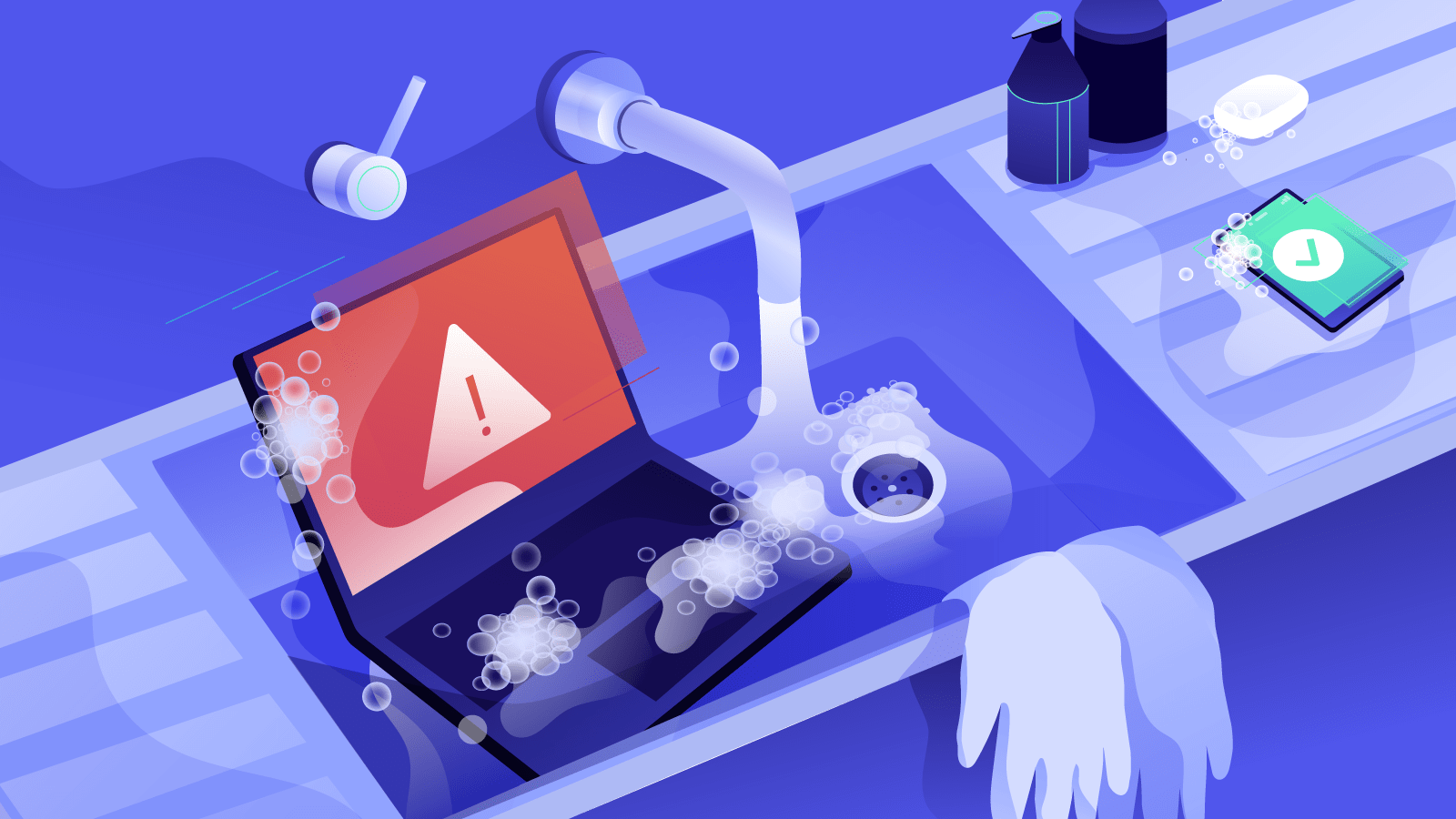In the current business environment where almost everything is done online, cybersecurity has become one of the biggest concerns of organizations. Ignoring cybersecurity precautions and best practices can cost a company much more than they expect, as we see companies trying to save themselves from the ruins of a data breach all over the news every day.
In order to make sure that their employees, devices, and data are secured, organizations practice cyber hygiene. Cyber hygiene is to safeguard sensitive information and protect it from theft and breaches. By adhering to cyber hygiene procedures, organizations can preserve their cyber “health” and make sure they are not affected by data breaches and cyberattacks.
What is cyber hygiene?
Cyber hygiene describes the core cybersecurity best practices that your employees and IT staff can implement. Following cyber hygiene helps you protect the network and assets of your company. Much as personal hygiene habits help you protect your own health.
The majority of data breaches are the result of making simple cyber hygiene mistakes. Your business must be able to correctly analyze its present cybersecurity posture and cyber hygiene. You and your IT staff must be aware of what is on your network, how everything is connected, and the risks involved.
Benefits of cyber hygiene
Protect your company from cyberattacks
One of the most prominent benefits of cyber hygiene is that it protects your devices, networks, and data against various dangers relating to cyberattacks. Your employees and clients depend on you to protect the sensitive data that you have, and not employing cyber security best practices can result in a loss of your reliable reputation.
More effective operations
Another benefit of employing good cyber hygiene is that well-maintained systems operate more effectively. In addition to that, lack of maintenance results in fragmentation, out-of-date applications, and other problems that disclose security gaps over time. Cyber hygiene makes it necessary to perform routine maintenance procedures to make sure that any hazards are identified early. This can help your company mitigate issues before they even emerge.
Reduced costs
It is obvious that data breaches are expensive for companies. Employing good cyber hygiene is therefore much more cost-friendly than risking losing millions of dollars as a result of a data breach or cyberattack. Also, cyber hygiene also helps you make sure that you are compliant with cybersecurity laws and regulations. Being non-compliant can have a high cost and is one of the main causes of company failure. With the correct tools, you can increase productivity while reducing expenses.
Cyber hygiene best practices
Make sure you have the right tools
When we think about our personal hygiene, we have specific tools for specific actions. We use a toothbrush to brush our teeth, a comb to brush our hair, and a washcloth to wash our bodies. The same can be applied to cyber hygiene. Personal data that you believe to be secure may really be in danger if you don’t use the proper goods and tools.
Use multi-factor authentication (MFA)
By requiring extra authentication steps such as a text message or a phone call before users are logged in to an account or access specific data, multi-factor authentication systems enhance enterprise security. Google claims that utilizing multi-factor authentication prevents all automated bot attacks. It helps to minimize the risk of data breaches by ensuring that every user that accesses sensitive information is indeed who they claim to be.
Employ VPNs in the workplace
With the rise of remote work, employees have started relying on different Wi-Fi networks to get their work done. Public Wi-Fi networks in particular aren’t always secure. Using free Wi-Fi in public spaces like cafes and hotels can be dangerous. Even your client’s home networks may be compromised.
The best way for a cybercriminal to access sensitive data of your company is through an unprotected network. Especially for employees who access sensitive data on a daily basis, this should be a risk you’re not willing to take. VPNs are one of the best secure remote access services, which will ensure your data is safe. Your internet traffic is routed over a secure tunnel when you use a VPN. This results in the data being encrypted, so anyone, even if they access the data, can’t decipher and use it.
Back up your data periodically
Data loss can result from hardware problems, power outages, virus infections, and other problems besides end users mistakenly deleting files. Ransomware is another threat to data. It is a type of cyberattack where a sort of virus encrypts files in an organization, which results in the attacker demanding astronomical ransoms from businesses in exchange for access to their data.
By making backup copies of all crucial files, you can save your company time and money. To prevent laborious manual effort and eliminate potential user errors, you should have a backup schedule and maybe automate that schedule using a backup solution.
Final words
Developing a cyber hygiene plan that can stop cyber criminals from causing security breaches and putting your company at risk is more crucial than ever in the constantly-changing threat landscape of today.
Many businesses today recognize the need of maintaining good cyber hygiene. They are aware that continuing procedures that support cyber hygiene will keep their employees and company secure from online dangers that have the power to devastate entire organizations. Be one of those companies by following the cyber hygiene best practices above.
